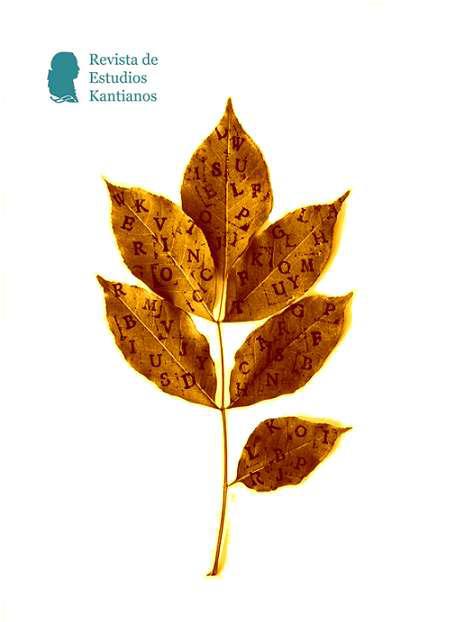Kant als Metaphysiker. Überlegungen zu Kants Metaphysikkritik
DOI:
https://doi.org/10.7203/REK.8.2.27510Palabras clave:
Category, criticism, development, dogmatism, god, idea, metaphysics, orientation, ontology, progress, scepticism, science Resumen
Resumen
Kant’s critique of metaphysics was not aimed at its whole destruction, but rather at its emendation. This becomes obvious, if we take into account Kant’s conception of the development of metaphysics which comes about in three steps. Kant named them as dogmatism, scepticism and criticism. It is not controversial to assume that criticism means Kant’s own position. If this is so, then one can also assume that Kant understood his own position as a third and last step in the development of metaphysics and therefore as a part of metaphysics. It is the aim of this essay to analyse this conception as it is presented in the Critique of Pure Reason and in the essay On the Progress of Metaphysics. There are first some prelimary remarks to make in order to explain the notion of development and its implications. Then in the second and third step an analysis is provided of this conception in the Critique of Pure Reason and in On the Progress of Metaphysics. In the last and fourth step the function of natural theology (theologia naturalis) is to be explained as it is found in the essay On the Progress of Metaphysics.
 Descargas
Descargas
 Citas
Citas
Cramer, K. 2001. Peripetien der Ontologie. Wolff, Kant, Hegel. In: R. Bubner und W. Mesch (Hg.). 2001. Die Weltgeschichte – das Weltgericht. Stuttgart: Klett-Cotta, S. 176-207.
Haamann, A. und Ludwig, B. 2017. Einleitung. In: A. Haamann, und B. Ludwig (Hg.). 2017. Über die Fortschritte der kritischen Metaphysik. Beiträge zu Architektonik und System der Kantischen Philosophie. Hamburg: Felix Meiner Verlag, S. 7-16.
Karásek, J. 2007. Philosophie als strenge Wissenschaft. Zur systematischen Begründung des Systems der Metaphysik bei Wolff und Kant. In: J. Stolzenberg und O.-P. Rudolph (Hg.). 2007. Akten der 1. internationalen Wolff-Konferenz Halle 2004. Hildesheim: Olms Verlag, S. 71-98.
Karásek, J. 2010. Der Selbstbezug der Vernunft. Zur Logik der Kantischen Ideendeduktion, in: J. Chotaš, J. Karásek und J. Stolzenberg (Hg.), Metaphysik und Kritik. Interpretationen zur „Transzendentalen Dialektik“ der Kritik der reinen Vernunft, Würzburg: Königshausen und Neumann 2010, S. 59-71.
Klemme, H. F., 2010. Die rationalistische Interpretation von Kants „Paralogismen der reinen Vernunft“. Eine Kritik. In: J. Chotaš, J. Karásek und J. Stolzenberg, Hg. 2010. Metaphysik und Kritik. Interpretationen zur „Transzendentalen Dialektik“ der Kritik der reinen Vernunft. Würzburg: Königshausen und Neumann, S. 141-161.
Langthaler, R., 2018. Kant über den Glauben und die „Selbsterhaltung der Vernunft“. Sein Weg von der „Kritik“ zur „eigentlichen Metaphysik“ – und darüber hinaus, Freiburg/München: Alber, S. 48-71.
Wundt, M. 1924. Kant als Metaphysiker. Ein Beitrag zur Geschichte der deutschen Philosophie im 18. Jahrhundert, Stuttgart: Ferdinand Enke Verlag.
Publicado
Cómo citar
-
Resumen218
-
PDF0
Número
Sección
Licencia
![]()
Los autores que publican en esta revista están de acuerdo con los siguientes términos:
- Los autores conservan los derechos de autor y garantizan a la revista el derecho de ser la primera publicación del trabajo al igual que licenciado bajo una Creative Commons Attribution License que permite a otros compartir el trabajo con un reconocimiento de la autoría del trabajo y la publicación inicial en esta revista.
- Los autores pueden establecer por separado acuerdos adicionales para la distribución no exclusiva de la versión de la obra publicada en la revista (por ejemplo, situarlo en un repositorio institucional o publicarlo en un libro), con un reconocimiento de su publicación inicial en esta revista.
- Se permite y se anima a los autores a difundir sus trabajos electrónicamente (por ejemplo, en repositorios institucionales o en su propio sitio web) antes y durante el proceso de envío, ya que puede dar lugar a intercambios productivos, así como a una citación más temprana y mayor de los trabajos publicados (Véase The Effect of Open Access) (en inglés).








